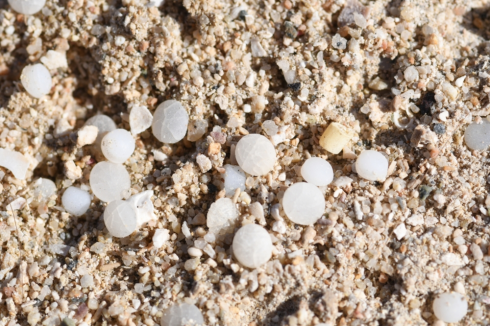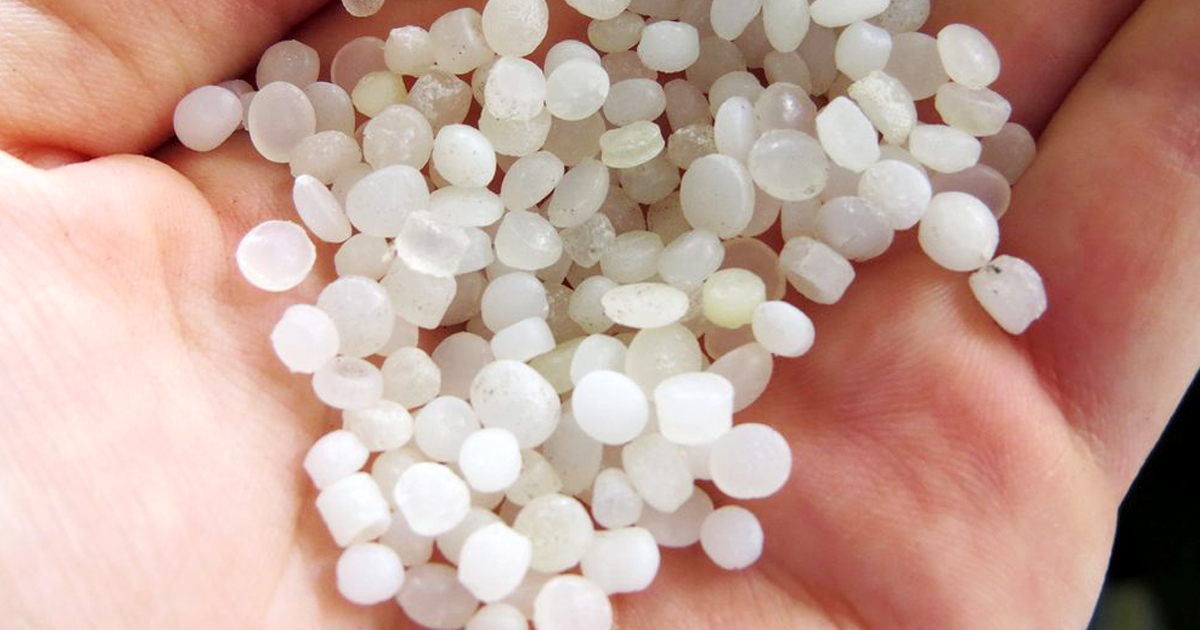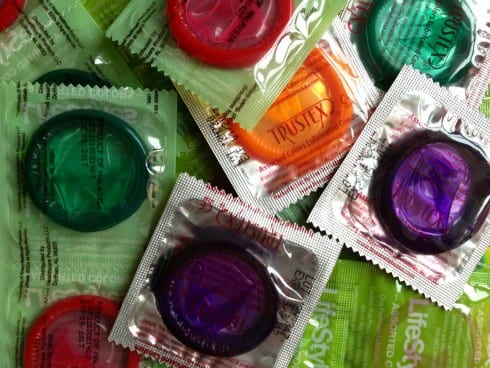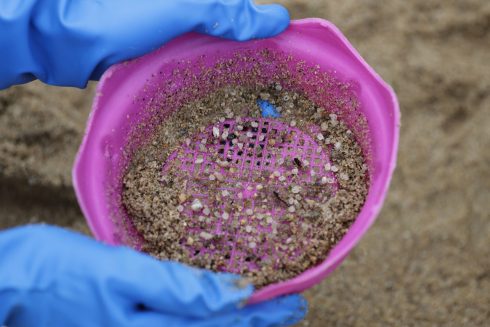BEACHES in northern Spain have become inundated with millions of plastic pellets from a container lost by a merchant ship on December 8 in Portuguese waters- some 80 kilometres west of Viana do Castelo.
The pellets were stored in 25 kilo plastic bags which broke up against rocks before reaching the coast.
The first ones were found on December 13 on Espiñeirido beach in Galicia and since then they have appeared across different areas including in the adjoining Asturias region.
Hundreds of volunteers have been mobilised to pick up the pellets and the Prosecutor’s Office will investigate their appearance on 30 Galicia beaches.
The pellets are only a few millimetres in diameter, but they are visible and larger than the average diameter of a grain of sand.

They are the raw material used to make plastic products and are polymers that can be melted and shaped to manufacture a desired product.
Given their small size, these plastics, scattered throughout the water column, will almost certainly end up being integrated into food chains, according to Greenpeace, which has pointed out that it is easy for birds and fish to ingest them by mistaking them for food, as they look like ‘small eggs’.
Its ingestion can cause gastric problems and even death in these animals, as well as end up integrated into the food chain.
It is also very likely that they will gradually decompose into microplastics, thus affecting filter feeders, according to the environmental organisation, which has warned that, in addition, these plastic components end up absorbing other marine pollutants becoming more dangerous over time.
Plastic pellets are one of the largest sources of unintentional microplastic pollution according to the European Commission and are found in all oceans and on beaches around the world.
The Commission pointed out in a report published in October that not only do they pose problem for animal and marine life, they will as a consequence be eaten by humans in food like fish.











